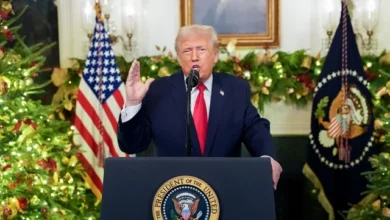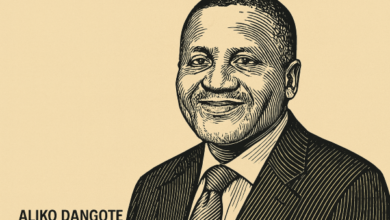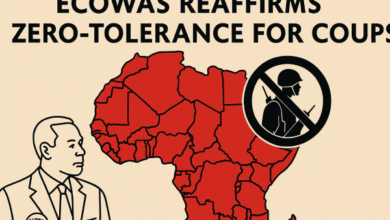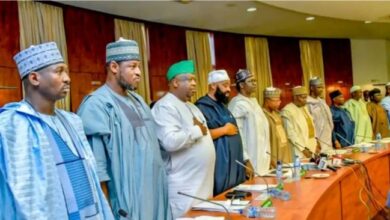Why Rivers Women Walked Out on First Lady’s Event: A Political Misstep or Grassroots Messaging Gone Wrong?
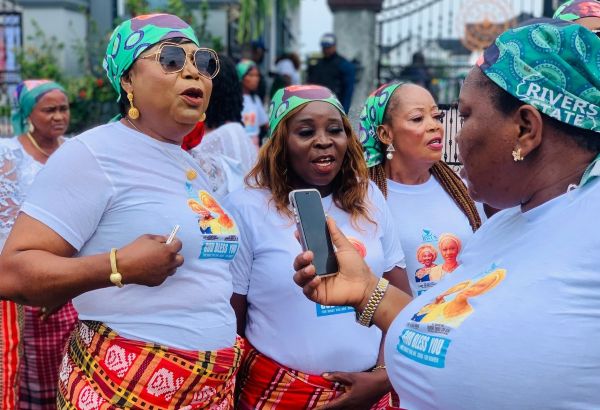
A well-intentioned women empowerment programme organised by Nigeria’s First Lady, Senator Oluremi Tinubu, in Port Harcourt on Friday ended in an embarrassing political debacle, as hundreds of Rivers women staged a dramatic walkout. Their demand? That they be addressed by either the Fisrt Lady herself or the wife of their elected governor, Lady Valerie Sim-Fubara.
While the event was officially aimed at economic upliftment — with 500 women receiving deep freezers, gas cookers, industrial grinders, and other business-starting equipment — the political undercurrents ran deeper than the organisers anticipated. The incident has not only stirred the local political cauldron but also raised important questions about grassroots perception, political legitimacy, and how national initiatives risk derailing when optics trump authenticity.
From Empowerment to Embarrassment: What Happened
The event, part of the “Renewed Hope Initiative” (RHI), was meant to demonstrate the Tinubu administration’s commitment to poverty reduction, gender equality, and enterprise development — in line with SDGs 1, 5, and 8. However, when the First Lady failed to appear in person, and Dr Theresa Ibas — wife of the state’s controversial Sole Administrator — stood in her place, the crowd of women took offense.
Chants of “We want Sim!” and “We want Valerie!” filled the air. The symbolism was deafening: the women were not rejecting the President’s wife, as later clarified by participants, but protesting what they saw as a political affront — being addressed by a representative of an unelected administrator rather than their elected governor’s wife.
Despite the economic value of the empowerment tools distributed, the incident underscores a hard truth: perception and political legitimacy matter as much as, if not more than, material support.
Wike’s Counteroffensive: Crisis Control or Political Repositioning?
Hours after the fiasco, Minister of the Federal Capital Territory and political godfather of Rivers politics, Nyesom Wike, issued a strongly worded apology on behalf of the state. From Beijing, where he is on official duty, Wike condemned the walkout, calling it “embarrassing” and “an insult to the office of the First Lady.”
But Wike’s statement was more than just a diplomatic balm; it was a coded political attack on suspended Governor Siminalayi Fubara, whom he accused of playing a double game — pleading for peace while allegedly fuelling division.
“These are the same people pleading for peace, but at the same time doing things that are contrary to what they are pleading for,” Wike said, adding: “How can you say you want peace and at the same time sponsor people to insult the President and his wife?”
The minister’s outrage was matched by street optics: small groups holding placards outside the courthouse earlier last week had also protested in support of individuals loyal to Wike.
The Business of Empowerment: Good Optics, Poor Execution
At the core of the walkout lies a paradox: the First Lady’s empowerment drive is arguably one of the most tangible grassroots outreach efforts by the Tinubu administration — directly linking the SDGs with the informal economy.
The equipment distributed could jumpstart income for hundreds of women across Rivers’ 23 LGAs. Participants like Tina Pepple and Favour Ekpeye praised the First Lady for “remembering the poor,” with one saying, “This is a miracle that would change my life.”
Yet, the misstep in protocol overshadowed the programme’s substance. Analysts say the choice of representation — Dr Ibas, the wife of a Sole Administrator appointed amid a political crisis — was tone-deaf, especially in a state where political allegiance remains sharply divided post-2023.
Political Economy Implications: Power Optics vs People Optics
This incident offers several lessons for the Tinubu administration and political operators:
- Legitimacy Matters: In politically sensitive zones like Rivers, symbolic gestures — such as who delivers a speech — can be as impactful as policy decisions.
- Grassroots Sensitivities: No amount of empowerment items can substitute for a misread of local sentiments. Economic goodwill must be accompanied by political sensitivity.
- Political Branding: The Renewed Hope Initiative risks being seen as a top-down federal programme rather than a unifying national project if it continues to be filtered through politically divisive lenses.
- Governance vs Loyalty Politics: The continued spat between Wike and Fubara — now playing out through women’s empowerment platforms — illustrates the tension between federal loyalty and sub-national legitimacy.
What Next?
As Rivers reels from the political drama, questions linger over how future empowerment efforts can avoid becoming political battlefields. While the First Lady’s office has yet to issue a direct response, the President’s broader political machinery would be wise to recalibrate its grassroots engagement strategy — particularly in politically sensitive or opposition-led states.
For now, the walkout in Port Harcourt stands as a case study in how not to stage political goodwill — and a reminder that in Nigeria, the theatre of politics often overshadows the substance of policy.
BRANDECONOMY will continue to monitor the fallout and explore its wider implications for women empowerment, federal-state relations, and the political branding of the Tinubu administration.









